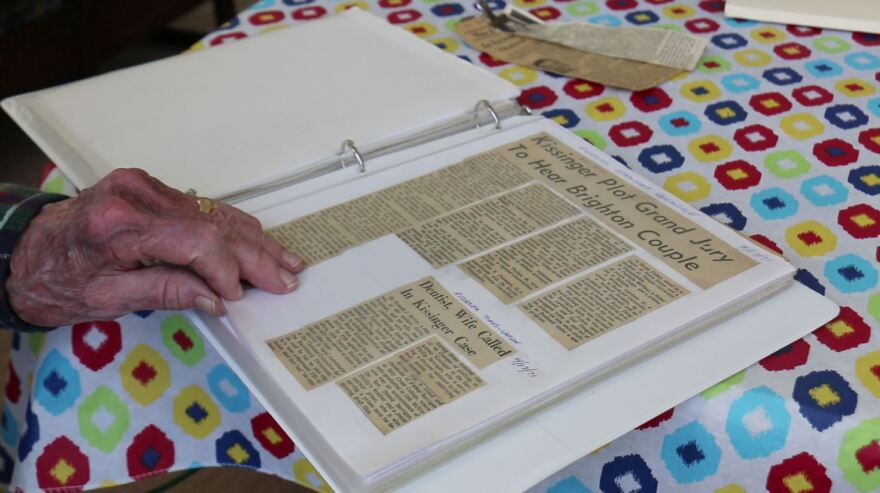When you think of an anti-war protester, what comes to mind?
Students, carrying signs? The word “hippie?” So-called leftists?
In the 1960s, George McVey was very much against the Vietnam War, but as a practicing dentist in his 30s, he didn’t exactly fit that stereotype.
“I was downtown in the Temple Building at that point,” he said of his dental practice.
His anti-war stance cost him some patients, as some conservative Rochesterians were less likely to seek his services, he said.
“I heard from other people,” McVey said. “The other people said that this guy or this woman doesn't want to go there. Well, which is understandable.”
Despite that — and his service in the U.S. Navy toward the end of World War II — McVey was committed to demonstrate for peace.
While attending College of the Holy Cross in Massachusetts, he met classmate Phil Berrigan, who became a Catholic priest and later, a peace activist who led draft board raids during the Vietnam War era. Berrigan would go on to give up his priesthood, but remained an activist for most of his life.
“When Phil and Dan Berrigan and the others were going at the draft board, particularly in Baltimore, I got a hold of Phil to try to understand what was going on,” McVey said. “So, he guided me to a couple of similar religious people in Rochester and that got me going to Immaculate Conception Church over in Corn Hill and that started the whole thing.”
McVey said he and his wife, Susan, would open their home to provide a meeting place.
“People coming to town would either stay with us or they would be part of a meeting,” he said.
As the father of six children, he didn’t take part in the draft board raids himself.
“The consensus was always that family comes first, so the majority of the people with the draft board actions was young people,” he explained.
But that didn’t mean he wasn’t a visible anti-war figure.
“We were all active locally. I was here in Rochester and street demonstrations and things like that. … I had a dental practice in downtown Rochester and at lunchtime, I went out there to get in the demonstration, and I was picked up by a police officer and arrested.
“They figured that if they got some of the leaders in the demonstration, they would have control over it. So there were probably three, four or five of us that they highlighted and picked us out of the group and put us in jail.”
McVey also was linked to a suspected plot to kidnap Henry Kissinger that he said may have been discussed in his home, though he didn’t take part in it. He said since the home was known as a meeting spot for activists, the FBI monitored it.

“The Bureau would keep an eye on our place and copy down the license plate numbers,” he said. “They must have had some sound pickup, and that whole situation was discussed in our living room. I don’t remember it. It was probably not with me, but with others.
“We always thought they were outside with some sound equipment and they could hit the window there. When people came into town to talk about doing something in Rochester or Buffalo, they would always end up in our place.”
He said he was among about 20 people served with subpoenas to appear at the subsequent trial. All of them showed up, he said, but they refused to testify.
“So that was a new experience,” he said.

